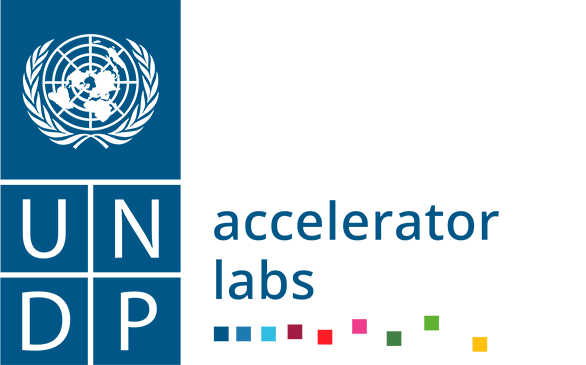An app to digitize financial transactions in cross-border trade
What it does. The VillageSavers app digitizes trade and financing for cross border traders who are women and young people, in their shared border towns of Livingstone (Zambia) and Victoria Falls (Zimbabwe). More specifically, the app:
- Allows informal Self-help Savings Groups (SHGs) to digitize their financial transactions records (savings and loans) through an automated digital system.
- Solves problems of poor record keeping, human error, lack of transparency, and distrust as each member has access to the information in real time.
- Increases informal businesses’ access to formal financial services as private banks have reported that the app’s credit history can be used to make a case for securing financial support. Specifically, VillageSavers app creates credit scores that can be used to access financing from formal financial services providers such as banks.
- Increases access to financial and digital literacy information by providing training on financial literacy, including financial and savings management, as well as training on how to use digital financial management tools.
Value proposition for the government/other partner. By using the VillageSavers app, self-help savings groups have a comprehensive solution to the challenges faced in informal savings groups. It not only improves financial management and transparency but also opens new opportunities for digital financial inclusion and access to formal financial services.
Notably, the VillageSavers app is most useful within the informal sector, catering to individuals who lack access to formal banking services. This community seeks to collectively pool their resources, thereby bolstering their borrowing and lending capabilities, leading to increased revenue for their businesses. Additionally, the app has demonstrated its value to formal financial institutions, as it helps them identify patterns of creditworthyness within the informal business sector, making it a viable tool for extending financial support to unbanked populations.
Why and when to use it. Small scale cross border traders (SSCBTs) suffer from lack of access to pensions, as well as other financial products and services because they are unable to engage with the pension authority and banks, who view serving them as risky. Using an app such as VillageSavers will create a digital transaction history that would enable banks and the pension authority to do more accurate risk assessments.
In order for the VillageSavers app to be effective, it’s important to have SMEs that have the following characteristics:
- Actively trading;
- Participating in a savings group;
- Have access to smartphones, internet and a basic level of financial and digital literacy (or are willing to receive assistance to access phones and training).
Known issues and troubleshooting. Key challenges are lack of digital skills, poor or limited internet connectivity, and difficulty accessing a smartphone, which can be price-prohibitive for some SMEs. SMEs might also experience difficulties using the app, for which they’d need technical and troubleshooting support.
Cost. Approximately $100,000, with the following breakdown:
- App maintenance, including trouble shooting, hosting fees etc., 35,000
- Smart phones, 20,000
- Meetings with beneficiaries, 10,000
- DSA and upkeep expenses, 15,000
- Travel expenses, 15,000
- Miscellaneous, 5,000
People.
Project Manager. The project manager will develop the concept note, design the experiment, collect baseline data, build partnerships, and provide direct oversight and management of the implementation of the proof of concept.
Innovation Lead. The innovation lead will coordinate all project activities, training, and app management.
External Consultant. A research consultant will implement surveys, run focus group discussions, and write the report.
Software Developer. The software developer will lead the development of the digital platform to ensure its continous operation, and to answer questions and resolve issues coming from the CBTs.
Innovator (as an implementing partner). The innovator implementing partner would refine the existing platform, deploy the app, carry out digital and financial skills training, and coordinate CBT (Cross Border Traders) participation, monitoring, and data sharing.
Project Analyst. The project analyst will be responsible for data collection, analysis, and reporting.
Social Development Officer. The social development officer will be responsible for community engagement, including hosting meetings and monitoring social change.
Focal points. Moses Mwansa and Salome Nakazwe.
Country, year, and language. Zambia, 2021-2023, English.
Resources.
- Implementation Summary for VillageSavers App. Read this document to understand what steps were taken to deliver the app to Cross Border Traders in Zambia and Zimbabwe.
- Baseline Survey Report. Read this report to understand the impact of COVID-19 on cross-border traders in Zambia and Zimbabwe.
- UNDP Exposure Report. Read this report for a narrative account of the VillageSavers app initiative, context, and impact.
- Endline Report. Read this report to gain insight into the impact of the VillageSavers app.
- Stakeholder Co-creation Workshop Agenda. Use this agenda to inform stakeholder engagement and co-creation efforts.
- Terms of Reference. Use this TOR as a template for hiring a consultant to conduct baseline and endline surveys and focus group discussions with cross-border traders, and to gather evidence on the impact of the VillageSavers app (or similar intervention) on the livelihood of the cross-border traders.
- Video tutorial on how to manage a village savings group through the VillageSavers app. Watch this video to understand how an accounnt is created on the VillageSavers app.
- Video documentary. Watch this documentary to learn about how and why founder Moses Mwansa built VillageSavers.
